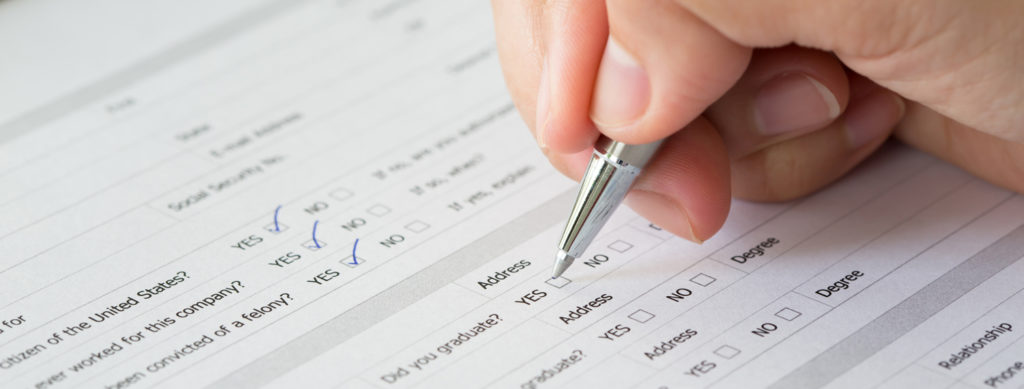
India is prominent for its complex tax system. It’s almost not possible for new businesses and startups to understand the direct and indirect tax systems. This problem gets even more bothered when regular changes are made to taxes with each financial year. But now this matter has changed with the Goods and Services Tax mostly known as GST. It has been almost 2 years since the tax has come into effect. The government has been raising new updates since its introduction and taxpayers need to always stay alert, as to confirm compliance and avoid notices being issued to them. Given below are some of the Dos and Don’ts that every GST taxpayer must be aware of:
Let us first take your glance to the dos
Always make sure to file your GST returns without delay
There are several returns and forms to be filed or submitted under GST. So that it is necessary to file them on time. One among the most fundamental things that will assist a business keep clear of interest, late fees, and notices would be to guarantee that all GST returns are filed within the specific due dates.
Make sure to upload right data in GSTR-1
While filing the GSTR-1, there are a lot of fields to be filled. Once it is filed the GSTN does not allow for the amendment of a return. As a result this makes the taxpayers in trouble. Taking care during the time of data-entry will make sure that no reconciliations and variations require to be done in the returns of later months.
Always maintain proper documentation
This is a requisite for GST audit. Having proper documents is an appreciable practice. Additionally, maintaining documents assure a smooth GST Reconciliation process. The sales register, purchase register, payment challans, e-way bills etc are some of the important documents that should be maintained.
Make sure to Reconcile Your Returns with Your Books of Accounts
This function is a very essential one for the businesses and should be done every month rather than waiting till the end of the year to reconcile the returns filed with their books of accounts. This healthy practice would allow us to identify any kinds of errors and omissions. Practicing this method would thus save interest, and penalties, if any.
Reconciling E-Way Bills delivered with the Invoice details furnished in GSTR 1
Each and every business should carry out the system of reconciling their e-way bills issued with that of invoice details under GSTR 1. Besides, you may receive a notice from the government in the case of mismatch of invoice details. Furthermore, this serves in effortless furnishing of annual GSTR.
Reconciliation between GST Returns
Reconciliation between GST Returns not just serves in filing faultless Annual GST Return but also helps in doing GST audit. Moreover, to get correct Input Tax Credit you must reconcile your purchase register with your GSTR 2A.
Check And Amend Your Returns previous to Filing the Annual Return
GST return filers should make sure on a timely basis that all undone amendments have been made to the monthly returns. If this is not done, it might lead to a difference between the returns filed during the year and the annual return. So that all reconciliations should be done and any inconsistency should be solved before the annual return is filed.
Reverse-Charge Mechanism
It is essential to update yourself about all the new notifications issued by the government concerning the reverse charge mechanism. Also, you must note that the utilization of input tax credit cannot be done when making reverse-charge payments and they can only be paid in cash.
Inform GST Authorities, if any change in business
In case of any change in the details of business filled out during registration, then it must be conveyed to GST authorities. Further, you must inform them 15 days prior to such change in the business. Moreover, you also have to submit an application for this change on the GST Portal along with all the documents prescribed.
GST Audit
A CA or CMA should audit your books of accounts when your business turnover exceeds 2 crores INR mark. Also, you need to submit an audited GST Return along with audited reconciliation statements.
Now let’s move on to the don’t’s
Be careful not to Pay Tax under the Wrong GST Head
Taxpayers must be extra careful on paying GST as sometimes you may make the mistake of paying tax under the wrong GST head, or paying interest under the tax head and many more. GSTN doesn’t allow inter-utilization of taxes. Payments done under wrong heads might lead to unfavorable working capital.
Categorizing Zero-rated Supplies same as Nil Rated Supplies and Vice Versa
One of the most common mistake committed by users is categorizing zero-rated supplies as nil-rated and vice versa. The Zero rated supplies are the export supplies and supplies made to an SEZ, while nil rated supplies are on which the rate of tax is 0%. Input tax credit cannot be claimed on nil-rated supplies, so that the users should be cautious while furnishing details in the GST returns.
Miss To File Your Nil Return
This is one of the vital aspects that the taxpayers sometimes ignore. A user should not forget to file a NIL return even if a business goes through any transactions for a specific period. Forgetting to file GST nil return might affect the flow of your subsequent return filing. If the past period returns have not been filed, the GSTN in some cases will not allow returns to be filed in such cases.
Applying Wrong Tax Rates
Always keep yourself updated concerning the new tax rates as the government keeps issuing new notifications regarding it. Further, Persons issuing GST invoices must make sure that the correct tax rate is charged whenever an invoice is being issued.
Unnecessary GST payment
You might make a GST payment by not understanding the reverse charge transaction. So you must make sure to identify whether the GST has to be paid by you or the recipient. Moreover, it may also result in double payment of GST.
Fail to Pay Tax on Job-work goods after the expiry of the specified period
In the case of a principal manufacturer, they are liable to pay tax with interest if the goods sent for job work are not given back within the specified time period. While taking in the case of moulds, dies, jigs and fixtures if they are not handed within the specified time then it is not considered as sale. Thus, the principal or job-worker is liable to pay any tax on them.
Claiming Ineligible Input Tax Credit
Never try to claim Input Tax Credit which is ineligible to be claimed as you may get a notice from the GST authorities. Not paying the supplier within 180 days, Using Input goods partly for personal purpose, Goods destroyed etc… Are some of the common cases where ITC cannot be claimed.
Fail to Claim Transitional Credit
For taxpayers who have not yet claimed their transitional credit due to some issues, the due date has been extended by the Government to 31st March and 1st April for TRAN-1 and TRAN-2 forms successively. As a result, users can still claim transitional credit from the pre-GST era up till the extended due dates.
For GST registered businesses, TallyBear.com provides a FREE integrated tool to track and check their compliance level for GST Returns file.








Hi, this is a comment.
To get started with moderating, editing, and deleting comments, please visit the Comments screen in the dashboard.
Commenter avatars come from Gravatar.
Comments are closed.